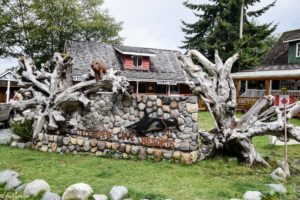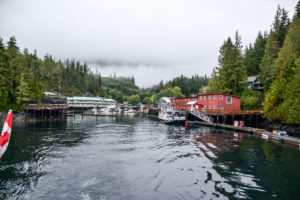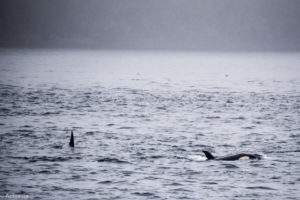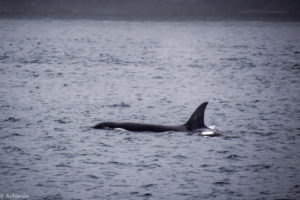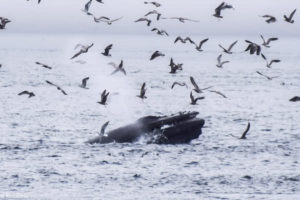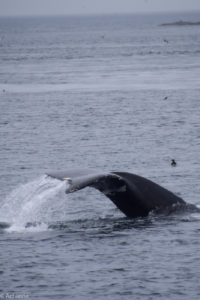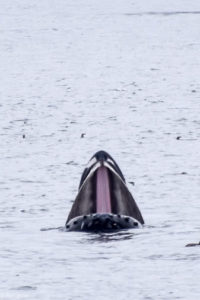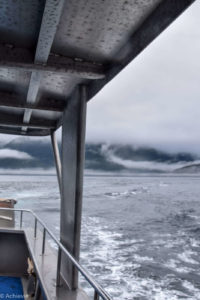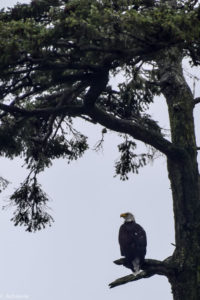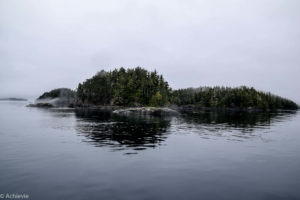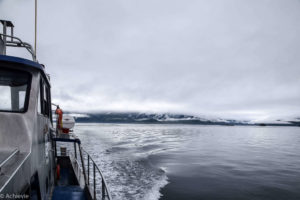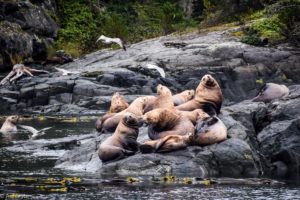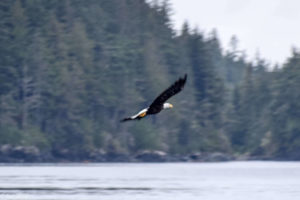Telegraph Cove is British Columbia’s last boardwalk community, where nature is abundant – eagles, otters, deer and bears all nearby. Sounded like the perfect place to start from!
We boarded the custom built whale watching boat in the morning. We were really excited about what we were going to see. As it was September, it was still the perfect time to spot the orca: Vancouver Island and mainland British Columbia are its home from early July through October. Although orca are the primary viewing experience, also humpback whales and dolphins are regularly encountered.
The trip took about 3,5 hours, guiding us through the passages and around the islands. It was an amazing setting. Although it was raining for most of the trip – and cold, of course – the fog added a very mysterious vibe, together with the eagles shrill sounds and the blowing of the whales. And we saw more than we could hope for. At a certain point we could literally look down a humpback whale’s mouth, when he reached up to catch some fish. A majestic bald eagle was sitting on the top of a tree hanging his wings to dry. To catch the orcas on camera, we really had to be quick, which wasn’t too easy, as you also needed to be lucky with where you were standing on the boat. To watch, hear and smell the Pacific harbour seals on the other hand, we had plenty of time – there’s a lot of them laying around on the rocks and “barking” at each other – so funny…
The boats are equipped with underwater microphones, so we could listen to the squeaks of the orcas and dolphins communicating. There’s also a naturalist on board, who explains about the natural behaviours of the animals and who answers any question you might have. When she explained about how bad the whales in general are doing because of men’s pollution and hunting, it really got to us. We were happy to hear that the Stubbs Island Whale Watching philosophy is to minimize their impact on the environment and the whales, striving to allow the whales to be observed in their natural environment without being disturbed. By using larger vessels it reduces the impact on their environment and minimizes the consumption of fossil fuels.
At the end of the Telegraph Cove boardwalk, there’s the Whale Interpretive Centre, which is run by the non-profit Johnstone Strait Killer Whale Interpretive Centre Society (JSKWICS). They were founded in 2002 to increase public awareness about the threats facing the marine mammals populations.
Other Countries we visited
Have a look at the other countries we ‘achievied’ to visit, and other Achievies…
